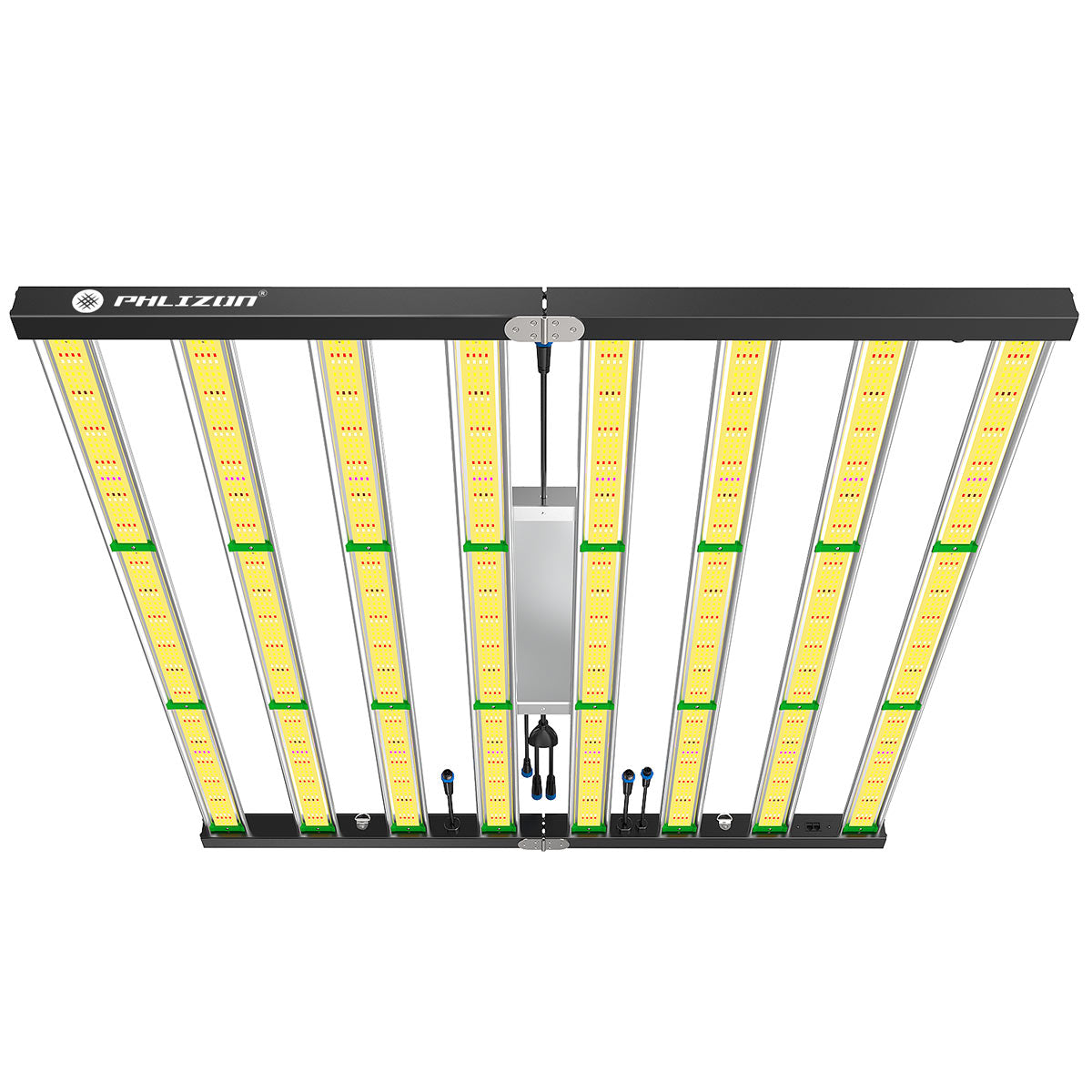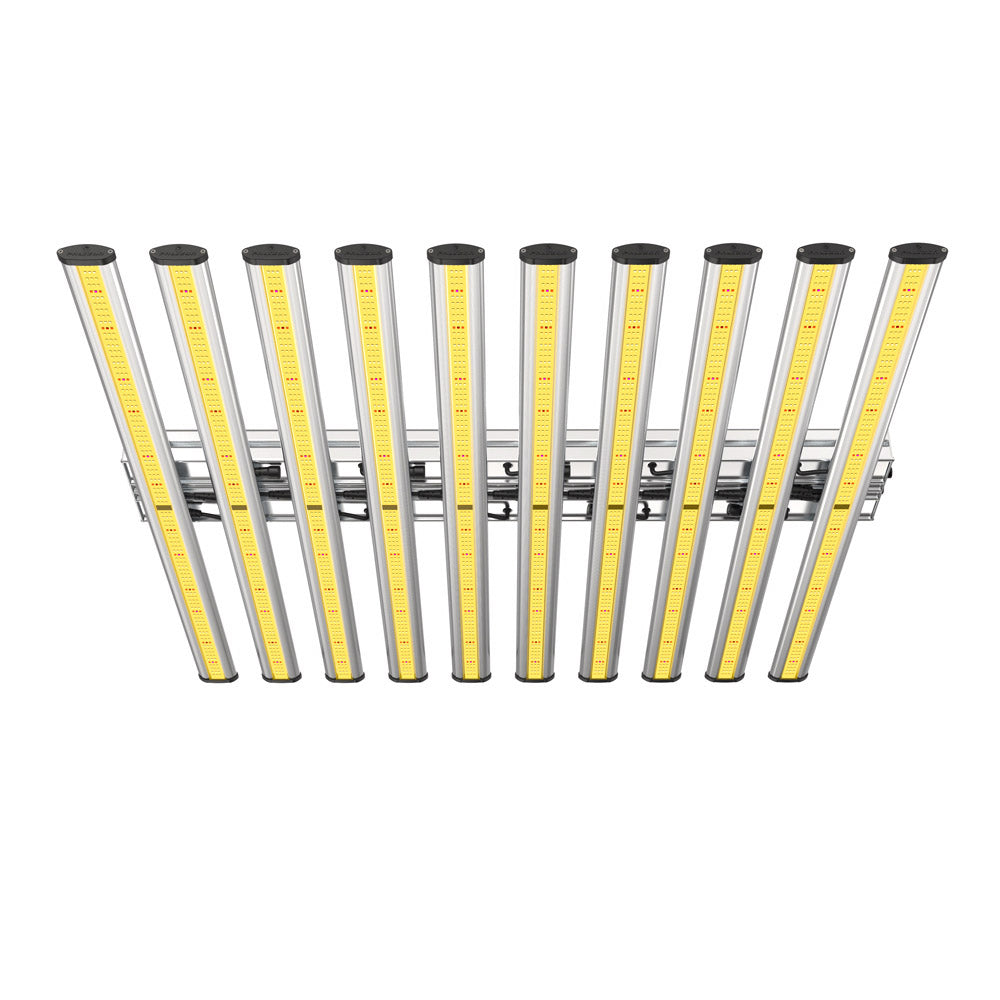Menu
Can LED Grow Lights Burn Plants?
As an indoor gardener, one of the most essential tools you need is a plant grow light as there is absence of sunlight indoors. The LED grow lights have become increasingly popular as a result of their high energy efficiency, and long life span.
LED grow lights provide a cost-effective alternative to sunlight without causing any harm to the plant.
Another thing about LED grow lights is that they do not burn plants as they emit the least amount of heat, hence the safest plant light for growing crops.
However, LED grow lights can still cause harm to plants if not properly set up and managed. Find out how you can effectively make use of an LED grow light and prevent damage to crops in the texts below.
What are LED Grow Lights?
LED grow lights are a type of tool that utilizes light-emitting diodes (LEDs) to generate light that serves as a substitute, for sunlight for plants. These LEDs consist of two semiconductor materials; one with charges known as "holes " and the other, with negative charges referred to as "electrons."
In general LED grow lights offer advantages compared to other lighting options. These benefits include reduced energy expenses decreased heat output, enhanced intensity, and improved temperature regulation. As a result, they are considered the choice, for providing the light, for plant growth in any type of environment.
Light between 400-700 nm wavelengths makes up the photosynthetically active radiation (PAR) for plant growth. The most effective wavelength of light for photosynthesis is 660-700 nm. Maximum photosynthesis takes place in red and blue light of the visible spectrum and minimum photosynthesis takes place in green light.
Between LEDs and fluorescent lights, what distinguishes them?
Generating ultraviolet radiation occurs in fluorescent bulbs when an electric charge moves through the bulb because it has inert mercury gas in it. This radiation converts to light with the help of the fluorescent coating applied inside the tube.
Although Fluorescent light offers a reliable source of UV light for plants, it has a few downsides which include:
- Potential health risk: The tube contains poisonous mercury
- Shorter lifespan: A fluorescent lamp does not last as long as LEDs
- Low energy efficiency
- LEDs, on the other hand, produce light through the emission of photons and also offer a cheaper and more efficient alternative to other plant growth lighting. However, some of its disadvantages include High initial costs: the materials required for production are quite expensive Blue light: The blue light emitted has a short wavelength and can damage the eyes.
What is Light Burn In Plants?
Light burn refers to a situation where the leaves of plants lose their color due, to being exposed to growth light. Signs of burn in plants include yellowing of leaves reduced green coloration, leaf distortion, and dryness.
Another condition that leads to poor plant growth is nutrient burn. Unlike light burn, nutrient burn occurs when you overfeed a plant thereby leading to excessive nutrients in the plant. It could lead to stunted growth, poor leaf formation, and even plant death.
Can LED Grow Light Cause Light Burn?
The amount of heat produced by LED grow lights does not cause plants to burn. However, we discovered that if high-intensity LED light is used or placed too close to the plant, it could lead to slight leaf burning and decoloration. For example, a 1000W grow light would have a higher heating effect than a 600W grow light when placed at the same distance from a plant.
How to Prevent Light Burn with LED Grow Light
Using an LED grow light doesn't eliminate all possibilities of a plant suffering a light burn. Therefore, we recommend you take the following essential precautions when using an LED grow light:
Avoid placing the light too close to your plants
Ensure to adjust the height of the light as your plants grow
Make use of a dimmable LED grow light to effectively adjust the intensity of light exposed to your plants
Always monitor your plants to check for any signs of stress and make the necessary adjustments
Make use of high quality LED grow lights. If you're seeking a durable and high quality LED grow light, you can check out PHLIZON - an LED grow light manufacturer with over 4 years of experience. PHLIZON offers a wide variety of high-quality LED grow lights including UV/IR LED lights, Samsung LED grow lights, and many more.
How to Identify and Treat a Light Burn
Early detection is very important in order to effectively address a light burn in a plant. Some of the symptoms we recommend to look out for in crops include yellowing of leaves, bud bleaching, leaf deformation, and dryness. Immediately any of these symptoms are identified, the following corrective measures should be taken:
First, move the plant further away from the light source and adjust the intensity of the light
Then, decrease the temperature of the room and provide adequate care to the affected plants
Technological Advancements in LED Grow Lights
LED grow lights continue to serve as the best source of plant light and are continually being improved upon for healthy plant growth. Some of the notable advancements we have noticed in LED plant light technology include:
- Full-Spectrum LED Lights: The recent models of LED grow lights offer a full spectrum of lighting encompassing all colors necessary for optimal growth of plants throughout their lifecycle.
- Tunable LEDs:LED grow lights have a tunable option for users to adjust the intensity and light spectrum used according to the specific needs of their crops and help improve their growth.
- Regulating light duration is made easier with smart devices being able to control the "on/off" lighting signals for your crops. LED grow lights have sensors equipped with them for that purpose. Additionally, features have been added to these lights that make them programmable through smartphones and tablets.
Final Words
The LED grow lights are very essential tools for gardeners. They offer a more reliable and efficient source of lighting for crops to grow. Also, it is crucial to always stay informed and updated as regards the use of LED grow lights for your crops. Endeavor to always carry out adequate research on your plant requirements in order to adjust the light spectrum for them, and ensure their healthy growth.
Featured blog
- Choosing a selection results in a full page refresh.
















